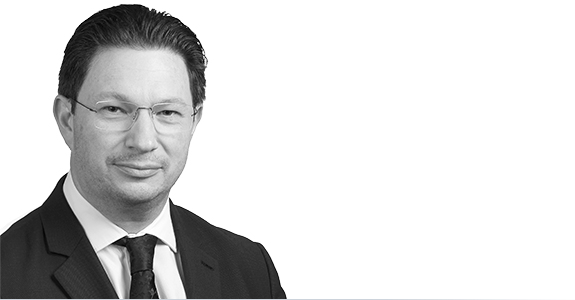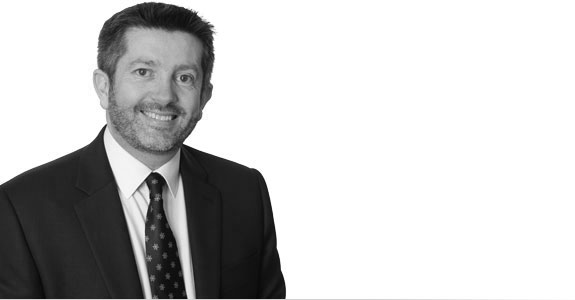Briefings
Autonomous ships: MASS – The “Pearl” of an Opportunity
Since our last article on Maritime Autonomous Surface Ships (MASS) in December 20181, as expected there have been continued developments in technology and demonstrations. In this briefing, we write with an update on the work we have been doing at HFW; the latest news from the International Maritime Organization (IMO) on its Regulatory Scoping Exercise (RSE); and recent developments worldwide.
HFW Offshore Day – “collision” involving an autonomous tug and an offshore installation!
On 22 May 2019 we hosted our second annual Offshore Day. Like the scenario in our P&I week 20182 the presentations were based on a fictitious scenario offshore in an oil and gas field. The day featured a number of presentations, including a presentation on cyber-induced casualties, and a presentation exploring how a casualty investigation would be carried out on a tug that had been towing a barge in autonomous mode.
Part of the scenario focused on an autonomous tug operating in an offshore field that had had its on board computer accessed following a breach of the ship security plan. The tug’s computer was infected with a virus that allowed rogue operators to take control of the tug and prevented manual override of the systems. Ultimately, the tug and the barge were driven into one of the offshore installations causing property damage and pollution. “That would not happen!” you may say. Perhaps, but never rule out the unexpected. The scenario also allowed us to explore some interesting legal and practical issues.
The presentation on cyber-induced casualties looked at the interaction between cyber risks and a vessel owner’s obligations in relation to seaworthiness and force majeure clauses. Given the current uncertainties involving cyber risks faced by owners in relation to seaworthiness, BIMCO’s Cyber Security Clause 2019 (released at the end of May) could be used to clarify each parties’ obligations and liabilities under a charterparty3.
Another presentation looked at how a collision involving a MASS would be investigated, developing some of the issues we discussed in our P&I week 2018. For more detail on those legal and practical issues, see our December 2018 briefing4.
SMIT Managing Marine Emergencies
We were invited by SMIT Salvage B.V. to speak at their bi-annual Managing Marine Emergencies Course in April 2019. The course, which is run over four days, provides an opportunity for participants to meet the salvage experts and those people who have been at the sharp end of dealing with marine casualties. The course highlights those vital “first response” actions needed to safeguard crew, ship, cargo, the environment, etc. Following on from the significant interest in MASS, and building on our own experience, we delivered a one-day workshop focussing on the salvage of an autonomous cargo vessel, which had been involved in a collision whilst sailing into a port on the South Coast of the UK.
The course raised some interesting points, in particular, whether a person who is not the Master of an autonomous vessel (such as an electrical engineer or technician) can bind the cargo interests to the terms of a Lloyds Open Form “No Cure – No Pay” salvage contract.
If you are interested in attending the course, please contact the course organisers5.
NOR Shipping 2019
Autonomous vessels played a key role in NOR Shipping 2019. The Yara Birkeland was nominated for NOR Shipping’s ‘Next Generation Ship’ award against several innovative tanker concepts from AET, Teekay and Sovcomflot. As many readers will know, the Yara Birkeland will be the world’s first fully electric, zero emissions and autonomous container ship. The operation ashore includes ‘all electric operations’ with loading and unloading being done automatically using electric cranes and equipment. The ship will also be equipped with an automatic mooring system and powered by hydroelectricity. The intention is that Yara Birkeland and the port infrastructure will produce zero harmful greenhouse gasses for its entire operational lifecycle.
One of the key presentations was given by Oscar Levander at the Ship Autonomy and Sustainability Summit, held at the start of NOR Shipping 2019. Mr Levander, who is head of marine innovation at Kongsberg Maritime Finland, said that there are significant opportunities for ship owners who are prepared to take the lead with autonomy, as they are likely to have a significant competitive advantage in the market. He highlighted many of the issues that we discussed in our December 2018 briefing, and his view that “autonomy [is] best suited to smaller vessel types, where the return on investment is relatively short”, concurs with ours, at least in the short and medium term.
He went on to say that he thought that nearly one third of the world’s fleet could switch to unmanned operations but that there was a particularly good case for the switch being made for cargo vessels moving non-hazardous cargoes, ferries, tugs and other smaller units in the confines of the port, as well as on inland waterways.
Interestingly, the insurance market perspective is slightly different. In Allianz Global Corporate & Specialty’s annual report on safety and shipping for 2019, the authors expressed the view that with regard to automation, “… progress continues to be made in the area of autonomous shipping, particularly in coastal waters and with smaller vessels and it is anticipated that such developments will improve shipping safety. While there will be incidences where technology and automation will remove crew from hazard, innovation should not be driven primarily by efficiency and accounting. As ongoing issues with large container ships and fires and misdeclared cargo show – innovation and technology is not a panacea if the root cause of incidents and losses is not addressed”.
This was highlighted in our own presentations at HFW Offshore Day 2019 (see above). Our view remains that development of MASS will focus on vessels operating in internal waters; MASS is an evolution in shipping, rather than a revolution.
Other developments worldwide
On 7 May 2019, the USV Maxlimer completed the first commercial crossing of the North Sea by a MASS. The 12-metre vessel arrived in Oostende with a 5kg cargo of oysters, a fraction of its maximum payload of 2.5 tonnes.
The mission was designed to showcase SEA_KIT’s unmanned navigation capabilities through GPS and satellite communication, including marine traffic avoidance in one of the world’s busiest shipping routes.
The mission was part of the preparations for the USV Maxlimer to attempt the world’s first transatlantic crossing without a crew from Canada to the South Coast of the UK. The vessel will conduct deep sea surveys en route and will be monitored by a control station in the UK.
The voyage is expected to take about 35 days and the developers were recently awarded the Shell Ocean Discovery XPRIZE, a competition to map the oceans effectively and efficiently.
A number of other vessels have been undergoing autonomous sea trials in the North Sea. On 19 and 20 March 2019, SeaZip 3, a Damen Fast Crew Supplier 2610 outfitted with collision avoidance technology, took part in trials approximately five nautical miles off the coast of Den Helder, Netherlands. The trials were part of the Dutch Joint Industry Project Autonomous Shipping6, a two-year research project started in 2017. Although the SeaZip 3 performed evasive manoeuvres safely, it was concluded that further development of autonomous systems was needed, in order to cope with the complex marine traffic situations usually experienced by conventional shipping.
Update on IMO Scoping Exercise
The IMO Maritime Safety Committee (MSC) held its 101st session from 5-14 June 2019 (MSC 101) and considered a status report on the Regulatory Scoping Exercise (RSE). The aim of the RSE is to determine how MASS might be addressed in IMO instruments by reviewing existing requirements and developing a roadmap as to how existing IMO instruments may be adapted to accommodate MASS in the future. An intersessional working group (IWG) on MASS will take place during 2 to 6 September 2019. This IWG will consider reports of Administrations responsible for developing assessments and addressing comments on certain IMO instruments. The RSE is currently expected to conclude in 2020.
The MSC also noted that the International Organization for Standardization (ISO) is developing an ISO Standard for MASS terminology for use in MASS; a submission is expected at MSC 102.
MSC 101 also approved a set of Interim Guidelines for MASS trials, which are very much high level and goal-based. These are in development and it is intended that there will be a single document for Administrations, industry and other relevant stakeholders.
Conclusion
Developments with MASS continue apace. However, whether the successful voyage of USV Maxlimer with its cargo of oysters reflects the true cultivation of a pearl of an opportunity remains to be seen.
Dates for your diary
HFW is planning to attend the events below this year and early next year, and we look forward to meeting some of you there.
| Event | Place | Date |
| International Seminar on Safety and Security of Autonomous Vessels (ISSAV) and European STAMP Workshop and Conference (ESWC) 2019 | Espoo, Finland | 17 September 2019 |
| Human-centred shipping - is there a future without it? |
Haugesund, Norway | 24 to 25 September 2019 |
| IEEE Intelligent Transportation Systems Conference - ITSC 2019 | New Zealand | 28 to 30 October 2019 |
| International Conference on Maritime Autonomous Surface Ships 2019 with MTEC 2019 | Trondheim, Norway | 13 to 14 November 2019 |
| World of shipping Portugal | Carcavelos, Portugal | 21 to 22 November 2019 |
| 2019 IEEE Oceans 2019 | Marseille, France | 17 to 20 June 2019 |
| TRA 2020 - Transport Research Arena 2020 | Helsinki, Finland | 27 to 30 April 2020 |
For further information, please contact:
Paul Dean
Partner, London
T +44 (0)20 7264 8363
E paul.dean@hfw.com
Tom Walters
Partner, London
T +44 (0)207264 8285
E tom.walters@hfw.com
Jonathan Goulding
Associate and Mariner
T +44 (0)20 7264 8573
E jonathan.goulding@hfw.com
Footnotes
- http://www.hfw.com/Autonomous-Ships-Shipping-4-0-Dec-2018
- http://www.hfw.com/P-and-I-Week
- http://www.hfw.com/HFW-Helps-BIMCO-Draft-First-Cyber-Clause
- http://www.hfw.com/Autonomous-Ships-Shipping-4-0-Dec-2018
- https://www.smit.com/services/salvage/managing-marine-emergencies-course.html
- http://autonomousshipping.nl/






